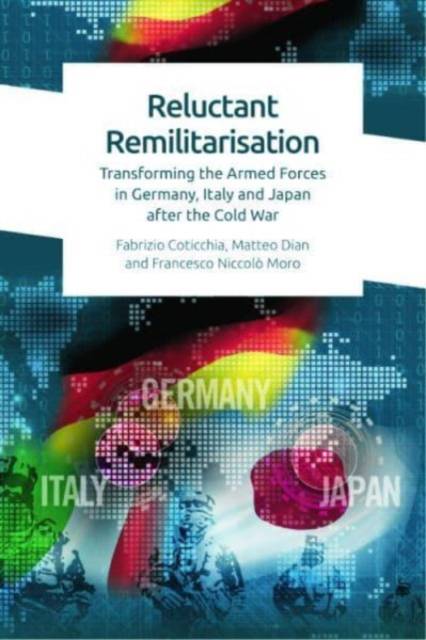
- Retrait gratuit dans votre magasin Club
- 7.000.000 titres dans notre catalogue
- Payer en toute sécurité
- Toujours un magasin près de chez vous
- Retrait gratuit dans votre magasin Club
- 7.000.0000 titres dans notre catalogue
- Payer en toute sécurité
- Toujours un magasin près de chez vous
Reluctant Remilitarisation
Transforming the Armed Forces in Germany, Italy and Japan After the Cold War
Fabrizio Coticchia, Matteo Dian, Francesco Niccolo MoroDescription
While armed forces in several countries underwent deep transformations after the end of the Cold War, few if any, however, experiences more radical changes than Germany and Italy, and Japan. The book explores how the three countries modified posture and structure of their militaries over the past three decades. While the three countries all had to overcome a pacifist constitution, a widespread view - in both elites and public opinion - that that war was a taboo, and armed forces designed to defend and deter against large-scale threats, they all became more active security providers over the last decades. Each country followed a distinct path, though. The book reconstructs these paths, trying to show how a mix of external and domestic factors affected the pace and the extent of transformations. The book also identifies critical junctures in such process: any push to change - it is argued - is mediated by the need to come to terms with the cumbersone weight of the past.
Spécifications
Parties prenantes
- Auteur(s) :
- Editeur:
Contenu
- Nombre de pages :
- 272
- Langue:
- Anglais
Caractéristiques
- EAN:
- 9781474467278
- Date de parution :
- 17-10-23
- Format:
- Livre relié
- Format numérique:
- Genaaid
- Dimensions :
- 156 mm x 234 mm
- Poids :
- 535 g

Les avis
Nous publions uniquement les avis qui respectent les conditions requises. Consultez nos conditions pour les avis.






